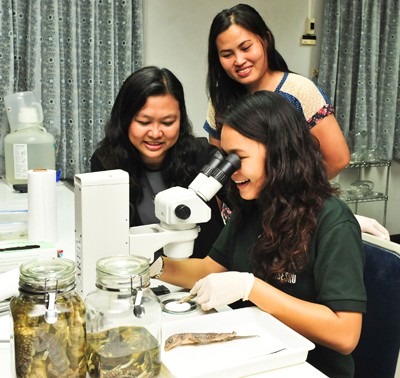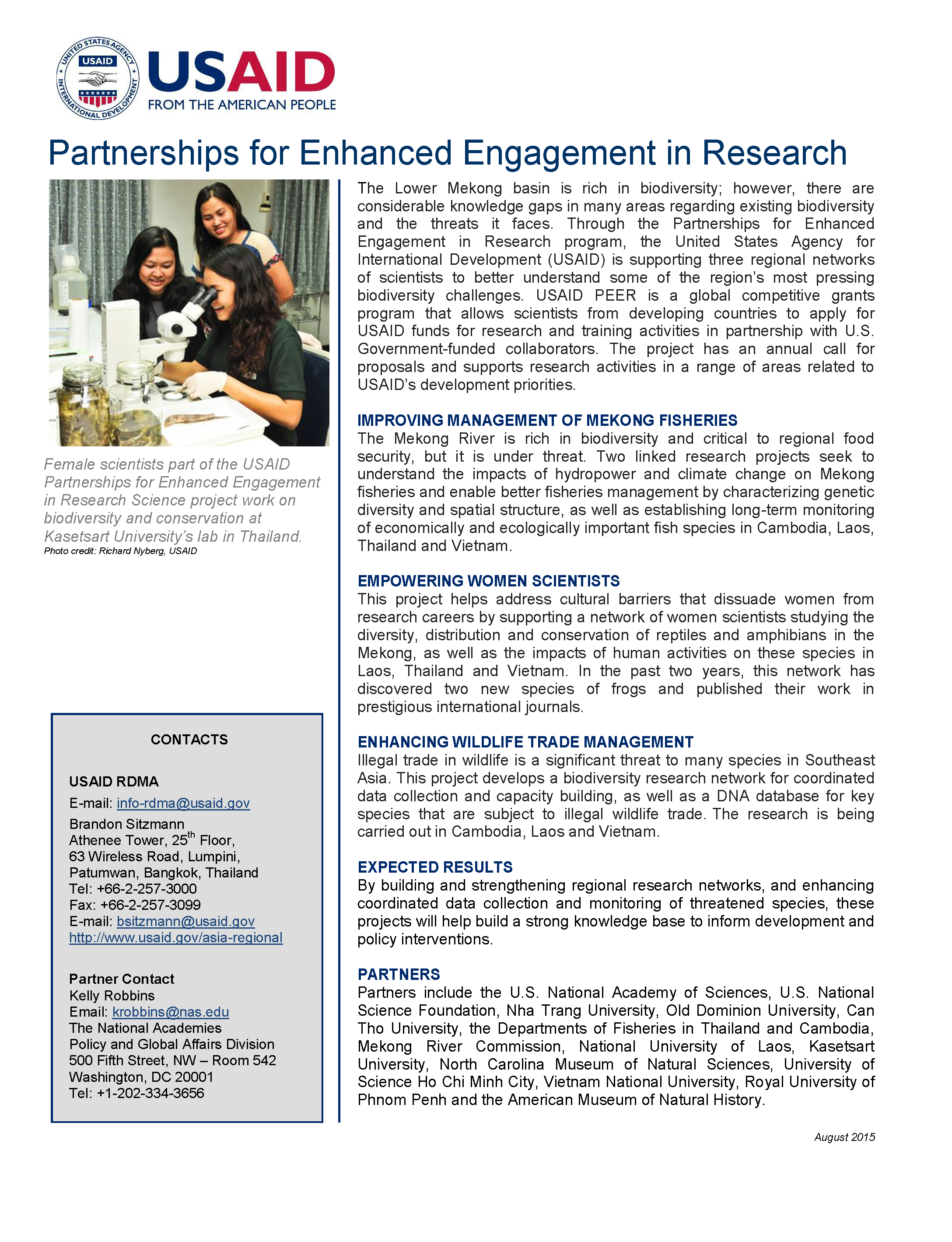
The Lower Mekong basin is rich in biodiversity; however, there are considerable knowledge gaps in many areas regarding existing biodiversity and the threats it faces. Through the Partnerships for Enhanced Engagement in Research program, the United States Agency for International Development (USAID) is supporting three regional networks of scientists to better understand some of the region’s most pressing biodiversity challenges. USAID PEER is a global competitive grants program that allows scientists from developing countries to apply for USAID funds for research and training activities in partnership with U.S. Government-funded collaborators. The project has an annual call for proposals and supports research activities in a range of areas related to USAID’s development priorities.
IMPROVING MANAGEMENT OF MEKONG FISHERIES
The Mekong River is rich in biodiversity and critical to regional food security, but it is under threat. Two linked research projects seek to understand the impacts of hydropower and climate change on Mekong fisheries and enable better fisheries management by characterizing genetic diversity and spatial structure, as well as establishing long-term monitoring of economically and ecologically important fish species in Cambodia, Laos, Thailand and Vietnam.
EMPOWERING WOMEN SCIENTISTS
This project helps address cultural barriers that dissuade women from research careers by supporting a network of women scientists studying the diversity, distribution and conservation of reptiles and amphibians in the Mekong, as well as the impacts of human activities on these species in Laos, Thailand and Vietnam. In the past two years, this network has discovered two new species of frogs and published their work in prestigious international journals.
ENHANCING WILDLIFE TRADE MANAGEMENT
Partnerships for Enhanced Engagement in Research ![]() (pdf - 244k)
(pdf - 244k)
Illegal trade in wildlife is a significant threat to many species in Southeast Asia. This project develops a biodiversity research network for coordinated data collection and capacity building, as well as a DNA database for key species that are subject to illegal wildlife trade. The research is being carried out in Cambodia, Laos and Vietnam.
EXPECTED RESULTS
By building and strengthening regional research networks, and enhancing coordinated data collection and monitoring of threatened species, these projects will help build a strong knowledge base to inform development and policy interventions.
PARTNERS
Partners include the U.S. National Academy of Sciences, U.S. National Science Foundation, Nha Trang University, Old Dominion University, Can Tho University, the Departments of Fisheries in Thailand and Cambodia, Mekong River Commission, National University of Laos, Kasetsart University, North Carolina Museum of Natural Sciences, University of Science Ho Chi Minh City, Vietnam National University, Royal University of Phnom Penh and the American Museum of Natural History.
Click here for the pdf version.








Comment
Make a general inquiry or suggest an improvement.